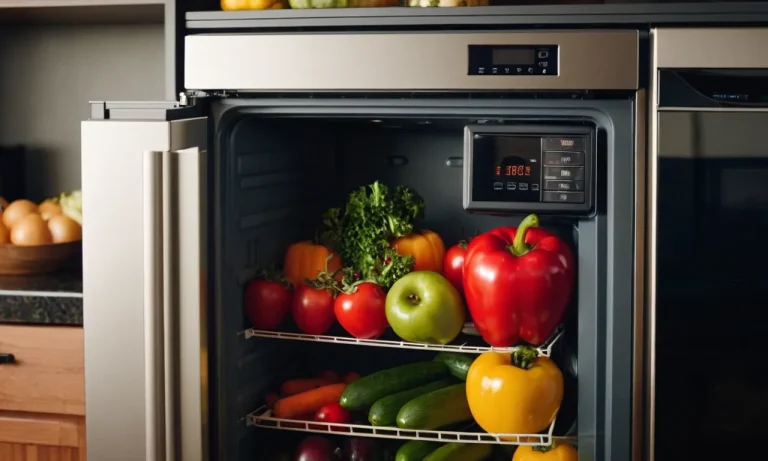Is It Safe to Use Hotel WiFi for Banking? A Comprehensive Guide
In today’s digital age, staying connected is a necessity, and hotel WiFi networks have become a convenient way to access the internet while traveling. However, when it comes to sensitive activities like online banking, the question of security arises: Is it safe to use hotel WiFi for banking?
If you’re short on time, here’s a quick answer to your question: Using hotel WiFi for banking can be risky due to potential security vulnerabilities, but there are steps you can take to mitigate the risks and stay safe.
In this comprehensive article, we’ll delve into the potential dangers of using hotel WiFi for banking, explore the best practices for secure online transactions, and provide practical tips to help you stay protected while on the go.
Understanding the Risks of Hotel WiFi Networks
When traveling, the convenience of free hotel WiFi can be tempting, especially for conducting online banking or accessing sensitive information. However, it’s crucial to understand the potential risks associated with these networks.
Hotel WiFi systems are often unsecured or inadequately protected, leaving them vulnerable to cyber threats. In this section, we’ll explore the risks of using hotel WiFi for banking and provide insights to help you stay safe.
Unsecured Networks and Eavesdropping
Many hotels offer open WiFi networks without encryption or password protection. This means that anyone within range can potentially intercept the data transmitted over the network, including your login credentials, financial information, and other sensitive data.
According to a CyberScoop report, the hospitality industry is a prime target for cybercriminals due to its vast network of unsecured systems and data-rich environment. Eavesdropping, or sniffing, is a common technique used by hackers to monitor network traffic and steal valuable information.
It’s essential to avoid transmitting sensitive data over unsecured hotel WiFi networks to mitigate the risk of eavesdropping.
Man-in-the-Middle Attacks
Another significant threat associated with hotel WiFi networks is the possibility of man-in-the-middle (MITM) attacks. In this type of attack, a hacker intercepts the communication between your device and the intended destination (e.g., your bank’s website) by positioning themselves as a middleman.
They can then monitor, manipulate, or even redirect the data flow, potentially stealing your login credentials or financial information. A study by VPNMentor revealed that 😲 24% of public WiFi hotspots are vulnerable to MITM attacks, highlighting the severity of this threat.
Malware and Phishing Threats
Hotel WiFi networks can also be exploited to distribute malware or launch phishing attacks. Cybercriminals may set up rogue access points or fake WiFi networks that mimic legitimate hotel networks. When unsuspecting users connect to these malicious networks, they can unknowingly download malware or be redirected to phishing sites designed to steal their login credentials or financial information.
According to a Symantec report, the hospitality industry experienced a 💯 600% increase in web attacks from 2015 to 2017, with many of these attacks targeting hotel guests.
To stay safe while using hotel WiFi, it’s recommended to:
- Avoid accessing sensitive accounts or conducting online banking
- Use a virtual private network (VPN) to encrypt your internet traffic
- Keep your devices updated with the latest security patches
- Be cautious of phishing attempts and verify the legitimacy of websites before entering sensitive information
Remember, your online security and privacy should be a top priority, especially when using public WiFi networks like those found in hotels. By understanding the risks and taking appropriate precautions, you can enjoy the convenience of hotel WiFi while minimizing the potential threats to your sensitive data and financial information.
Best Practices for Secure Online Banking
When it comes to online banking, security should be your top priority. With the rise of cyber threats and data breaches, it’s crucial to take proactive measures to safeguard your sensitive financial information.
In this section, we’ll explore some of the best practices to ensure secure online banking, especially when using hotel WiFi networks.
Use a Virtual Private Network (VPN)
One of the most effective ways to secure your online banking activities is by using a Virtual Private Network (VPN). A VPN creates an encrypted tunnel between your device and the internet, shielding your data from potential eavesdroppers and hackers.
By routing your internet traffic through a secure server, a VPN prevents unauthorized access to your sensitive information, even on public WiFi networks.
According to a recent study, over 31% of internet users worldwide use a VPN, with the primary reasons being online privacy and security. When choosing a VPN service, opt for reputable providers with robust encryption protocols and a strict no-logs policy.
Popular options include NordVPN, ExpressVPN, and ProtonVPN.
Enable Two-Factor Authentication
Two-factor authentication (2FA) adds an extra layer of security to your online banking accounts by requiring a second form of verification in addition to your password. This can be a one-time code sent to your mobile device, a biometric factor like fingerprint or facial recognition, or a physical security key.
According to Microsoft, 99.9% of account compromise attacks can be prevented by using multi-factor authentication. Most major banks and financial institutions offer 2FA as an optional or mandatory security feature.
Don’t hesitate to enable it – it’s a simple yet powerful way to protect your accounts from unauthorized access.
Avoid Public WiFi for Sensitive Transactions
While public WiFi networks at hotels, airports, and coffee shops can be convenient, they also pose significant security risks. These networks are often unsecured, making it easier for cybercriminals to intercept your data or launch man-in-the-middle attacks.
If you must use public WiFi for online banking, consider using a VPN and avoid conducting sensitive transactions such as transferring funds or updating personal information. Instead, limit your activities to basic account monitoring or wait until you have access to a secure, private network.
Alternatively, you can tether your smartphone’s mobile data connection or use a personal hotspot for a more secure internet connection. According to VPNMentor, 48% of people who use public WiFi have experienced a cyber attack, underscoring the importance of exercising caution when accessing sensitive information on these networks.
Tips for Safe Hotel WiFi Usage
Verify the Network’s Legitimacy
Before connecting to a hotel’s WiFi network, it’s crucial to verify its legitimacy. Malicious individuals can create rogue access points with deceptive names to lure unsuspecting users into connecting.
To ensure you’re connecting to the hotel’s official network, check with the front desk or consult any posted information about the network name and password. According to a study by Kaspersky Lab, over 25% of hotel networks are vulnerable to cyber attacks.
😨 Don’t connect to any network that raises suspicion or lacks proper authentication measures.
Update Software and Antivirus Protection
Before accessing the hotel WiFi, ensure that your devices are up-to-date with the latest software and antivirus protection. Outdated software and operating systems often contain vulnerabilities that cybercriminals can exploit to gain unauthorized access or install malware.
Regularly updating your devices can significantly reduce the risk of cyber threats. According to AV-TEST, there were over 1.2 billion new malware samples detected in 2022 alone. 😮 Don’t take chances with outdated security measures when using public WiFi networks.
- Update your operating system to the latest version
- Install the latest security patches and updates for your applications
- Enable automatic updates for your antivirus software
Avoid Accessing Sensitive Information on Public Networks
While hotel WiFi networks may be convenient, they should be treated as unsecured and potentially vulnerable to eavesdropping or man-in-the-middle attacks. It’s advisable to avoid accessing sensitive information, such as online banking, shopping with stored payment methods, or logging into accounts containing personal or financial data.
If you must access such information, consider using a reputable virtual private network (VPN) service to encrypt your internet traffic and protect your privacy. According to a survey by Bankrate, over 41 million Americans had their identities stolen in 2022.
😱 Don’t risk exposing your sensitive data on public WiFi networks.
| Activity | Risk Level on Public WiFi |
|---|---|
| Browsing general websites | Low |
| Online banking or shopping | High |
| Accessing work-related sensitive data | High |
By following these tips, you can enjoy the convenience of hotel WiFi while minimizing the risks to your online security and privacy. Remember, a little caution goes a long way in protecting your digital life. Stay safe and happy travels! 🌍✈️
Alternative Solutions for Secure Banking
While hotel WiFi networks may be convenient, they often lack robust security measures, making them susceptible to cyber threats. To ensure the safety of your sensitive financial information, it’s essential to explore alternative solutions for secure banking.
Here are some reliable options to consider:
Mobile Data and Hotspot Tethering
One of the most secure alternatives to hotel WiFi is using your mobile device’s data plan or personal hotspot. According to a study by Comparitech, 92% of cybersecurity professionals recommend using mobile hotspots over public WiFi networks.
Mobile data connections are typically encrypted and less vulnerable to man-in-the-middle attacks, providing a safer environment for online banking and financial transactions.
Dedicated Travel Router or Mobile Hotspot
Investing in a dedicated travel router or mobile hotspot can be a game-changer for secure banking on the go. These devices create a private, encrypted network that shields your online activities from prying eyes.
According to Lifewire, top-rated travel routers like the GL.iNet GL-AR750S and TP-Link AC750 offer robust security features, including VPN support and built-in firewalls. With a dedicated travel router, you can enjoy the convenience of WiFi while maintaining a high level of privacy and security.
Postpone Sensitive Transactions Until a Secure Connection is Available
While it may not be the most convenient option, sometimes the safest approach is to postpone sensitive financial transactions until you have access to a secure, trusted network. This could mean waiting until you return home, reach your office, or find a reputable public WiFi network with proper encryption and security protocols in place.
As tempting as it may be to quickly check your bank accounts or make a payment while on the go, the risks associated with unsecured networks may outweigh the convenience. Don’t hesitate to prioritize your financial security over immediate access.
By embracing these alternative solutions, you can significantly reduce the risks associated with using hotel WiFi for banking purposes. Remember, your financial security should always be the top priority, and taking proactive measures to protect your sensitive information is crucial in today’s digital landscape.
Stay vigilant, stay safe, and enjoy your travels with peace of mind!
Staying Vigilant: Ongoing Cybersecurity Awareness
Monitor Financial Accounts Regularly
In the ever-evolving landscape of cybersecurity threats, staying vigilant and proactive is paramount. One crucial step in maintaining your financial safety is to regularly monitor your accounts for any suspicious activity.
Don’t let your guard down, even after a seemingly innocuous hotel WiFi session. Experts from the Federal Trade Commission (FTC) recommend checking your bank statements, credit card statements, and credit reports frequently to detect any unauthorized transactions or signs of identity theft.
According to a 2023 Identity Fraud Study by Javelin Strategy & Research, account takeover fraud losses increased by a staggering 💰 $3.7 billion in 2022. This alarming statistic underscores the importance of staying vigilant and taking proactive measures to safeguard your financial accounts.
Stay Updated on Cybersecurity Trends and Threats
The cybersecurity landscape is in a constant state of flux, with new threats and vulnerabilities emerging regularly. To stay ahead of the curve, it’s crucial to stay informed about the latest cybersecurity trends and threats.
Subscribe to reputable cybersecurity blogs, newsletters, or follow trusted sources on social media to stay up-to-date with the latest developments in the field.
Organizations like the National Cyber Security Centre (NCSC) provide valuable resources and guidance for individuals and families to stay informed and protected against cyber threats. By staying informed, you can better understand the risks associated with using public WiFi networks and take appropriate precautions to safeguard your personal and financial information.
Educate Yourself on Safe Online Practices
Knowledge is power when it comes to cybersecurity. Educating yourself on safe online practices can go a long way in mitigating the risks associated with using hotel WiFi for banking or other sensitive activities. Here are some essential tips to keep in mind:
- 🔒 Use strong, unique passwords for all your accounts and enable two-factor authentication whenever possible.
- 🔐 Avoid accessing sensitive information or conducting financial transactions on unsecured public WiFi networks.
- 👀 Be wary of phishing attempts and suspicious emails or links that may be designed to steal your personal information.
- 💻 Keep your devices and software up-to-date with the latest security patches and updates.
- 🚫 Refrain from sharing personal or financial information on unsecured websites or networks.
By incorporating these best practices into your online routine, you can significantly reduce the risks associated with using hotel WiFi for banking or other sensitive activities. Remember, staying vigilant and proactive is key to maintaining your financial security in the digital age.
Conclusion
While hotel WiFi networks offer convenience, using them for online banking can pose significant security risks. By understanding the potential threats, implementing best practices, and exploring alternative solutions, you can minimize the chances of falling victim to cybercrime while traveling.
Remember, staying vigilant and prioritizing cybersecurity is crucial in today’s digital landscape. By taking proactive measures and adopting a cautious approach, you can enjoy the benefits of staying connected while safeguarding your sensitive financial information.
Ultimately, the decision to use hotel WiFi for banking depends on your risk tolerance and the specific circumstances of your travel. By weighing the risks and taking appropriate precautions, you can make an informed choice that aligns with your security needs and peace of mind.







